The Vikings were a group of seafaring people who originated from Scandinavia in the late 8th century. They were known for their skill in navigation and warfare, and their raids and pillages of foreign lands were a common occurrence.
The Viking warrior was a key component of Viking society, and their brotherhood was based on loyalty, honor, and a strict code of ethics.
The Viking code of conduct, known as the “Laws of the Vikings,” emphasized the importance of loyalty, courage, and honor, and was a central aspect of Viking culture.
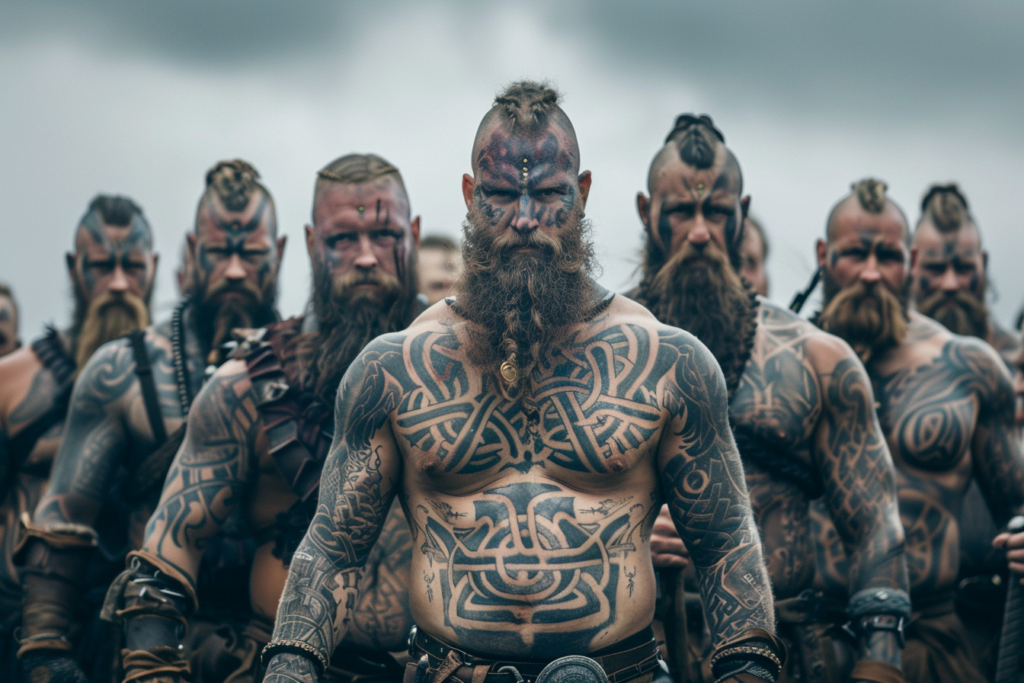
The Brotherhood of the Blade was a term used to describe the bond between Viking warriors. This bond was forged on the battlefield, where warriors fought side by side, risking their lives for the common goal of victory.
Loyalty was a crucial aspect of this brotherhood, and it was expected that warriors would remain loyal to their fellow brothers until death. This bond was not only limited to the battlefield, but also extended to everyday life, where warriors would support each other through thick and thin.
Exploring the Brotherhood of the Blade is an interesting topic that sheds light on the values and beliefs of Viking society. By examining the loyalty and brotherhood among Viking warriors, we can gain a better understanding of the social dynamics of Viking society and the role that the Viking warrior played in it.
The Viking Age and Warrior Culture
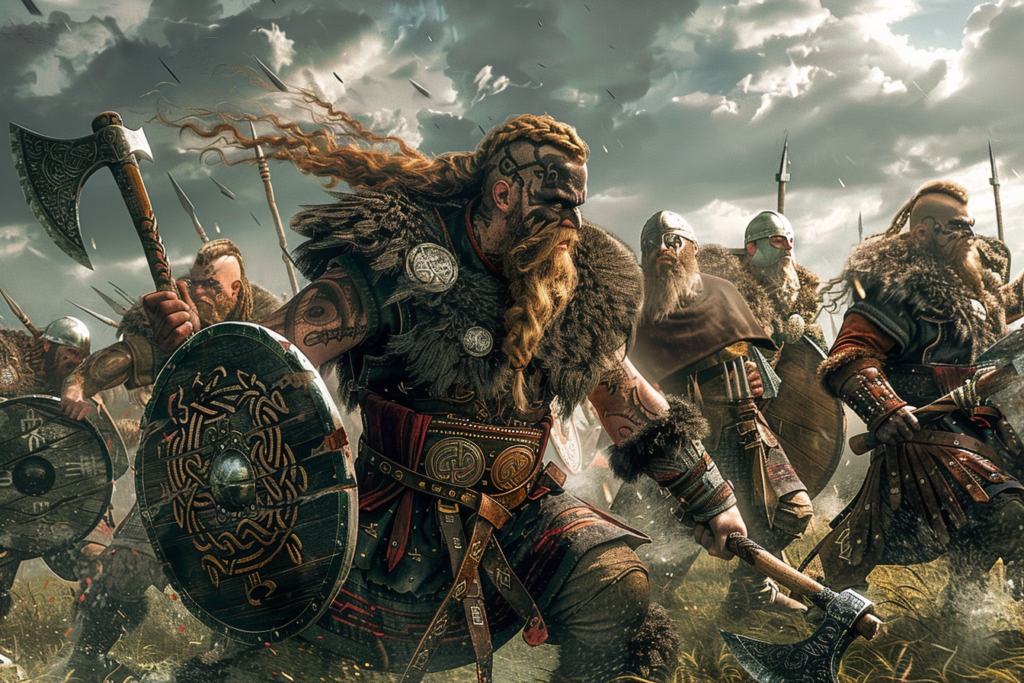
Origins and Expansion of Viking Raiders
The Viking Age lasted from the 9th to the 11th century. The Vikings originated in the Scandinavian countries of Norway, Denmark, and Sweden, and their seafaring abilities allowed them to travel great distances and establish colonies in places as far away as North America, the Middle East, and Central Asia. The Vikings were not just raiders, however; they were also traders, farmers, and craftsmen.
Their society was complex and highly organized, with a strong emphasis on loyalty and honor.
Understanding the Viking Warrior Ethos
The Viking warrior ethos was based on a strong sense of loyalty to one’s family, clan, and leader. The Vikings believed that death in battle was the surest way to gain entry into Valhalla, the hall of the slain, where they would feast and fight in eternal glory. The Vikings were also known for their berserkers, warriors who fought with a frenzied rage and were believed to be possessed by the spirit of Odin, the god of war and death. The berserkers were feared by their enemies and respected by their fellow Vikings.
The Role of Mythology in Viking Society
Mythology played a significant role in Viking society, providing a framework for understanding the world and the gods. The Vikings believed in a pantheon of gods and goddesses, including Odin, Thor, and Freya. These gods were seen as powerful, but also capricious and unpredictable, and the Vikings believed that they needed to appease them through offerings and sacrifices. The sagas, epic tales of adventure and heroism, were also an important part of Viking culture, providing a source of entertainment and inspiration for the warriors.
Weapons, Tactics, and Warfare
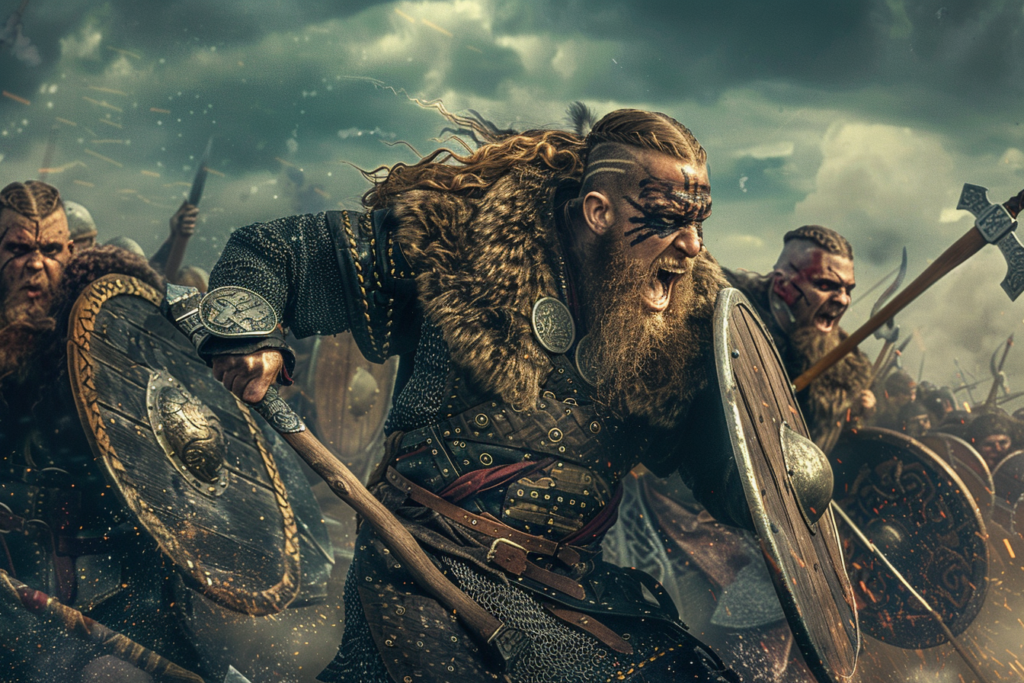
Mastery of the Sword and Axe
Viking warriors were known for their exceptional skills with swords and axes. They were trained from a young age to use these weapons with precision and strength.
The Viking axe was a versatile weapon that could be used for both hacking and thrusting. It was also used for throwing and could be deadly in the hands of a skilled warrior. The Viking sword, on the other hand, was a symbol of status and power. It was a single-edged weapon that was designed for quick and powerful strikes.
Strategic Brilliance in Viking Raids and Battles
The Vikings were not just ferocious warriors, but also skilled strategists. They would often use surprise attacks to catch their enemies off guard.
They were also known for their use of hit-and-run tactics, where they would quickly strike and then retreat before their enemies could respond. The Vikings were also experts in siege warfare. They would use battering rams, siege towers, and other tactics to breach enemy defenses.
The Brotherhood in Defense and Attack
The Viking warriors had a strong sense of loyalty and camaraderie that was unmatched in other cultures.
This loyalty was evident in both defense and attack. When defending their homes and families, Viking warriors would fight with a ferocity that was unmatched. When attacking, they would work together as a cohesive unit, using their skills and tactics to overwhelm their enemies.
The Vikings also had a deep sense of discipline. They would train rigorously and follow strict codes of conduct. This discipline was evident in their tactics and strategy. They would work together as a team, using their strengths to overcome their enemies. The Viking warriors were also known for their strength and endurance. They would often carry heavy shields and weapons, but they were still able to move quickly and with agility.
Loyalty and Social Bonds Among Vikings
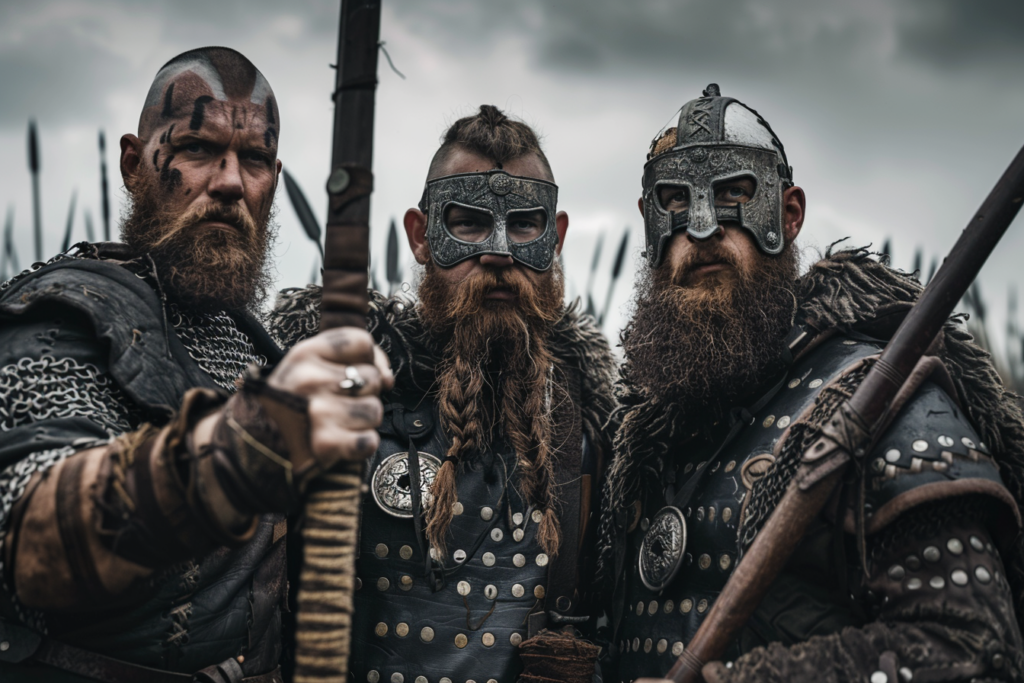
The Vikings were known for their strong sense of loyalty and brotherhood. To them, these values were sacred and unbreakable, and it was through these bonds that they found strength and support in times of need.
Oaths and Honor: The Unseen Glue of Viking Loyalty
Central to the Viking code of honor was the concept of oaths and honor. The Vikings believed that oaths were binding and that breaking them was a grave offense. They took their oaths seriously and would go to great lengths to keep them. This sense of honor was deeply ingrained in Viking culture and was seen as essential to maintaining social order.
Sagas and Stories: The Preservation of Brotherhood
The Vikings also used storytelling as a way to preserve their sense of brotherhood. Sagas and stories were passed down from generation to generation, and they were used to teach young Vikings about their culture and history.
These stories often featured heroic warriors who embodied the values of loyalty, honor, and respect. Through these stories, the Vikings were able to reinforce their sense of identity and maintain their strong social bonds.
The Varangian Guard: A Case Study in Viking Loyalty
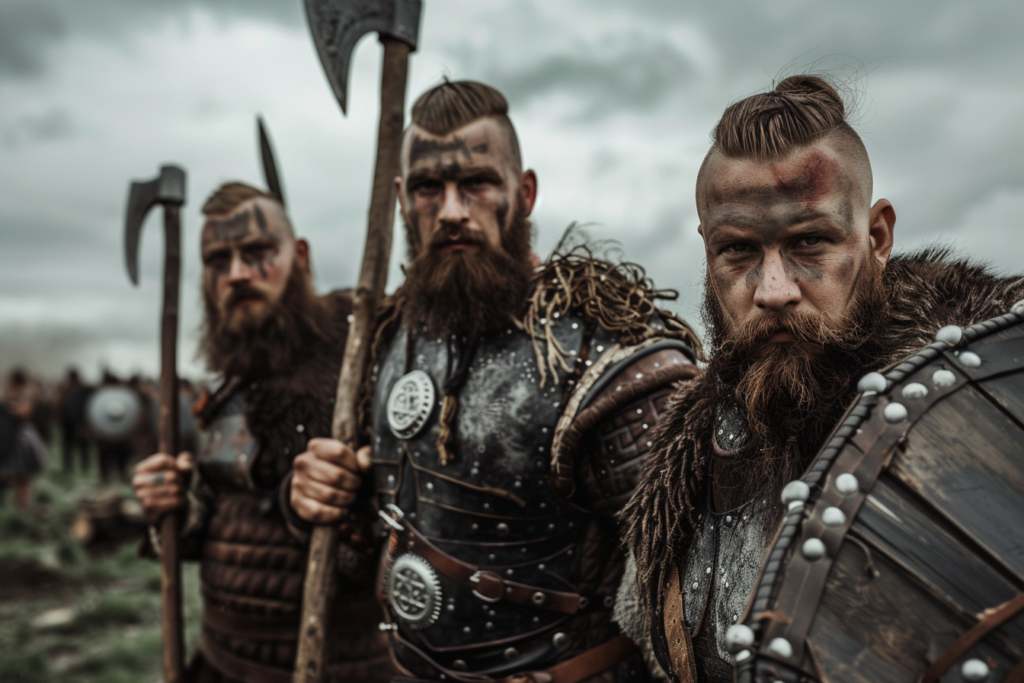
From Scandinavia to the Byzantine Empire
The Varangian Guard was an elite group of Viking warriors who served as the personal bodyguards of the Byzantine emperor. They were recruited from Scandinavia and played a significant role in the history of the Byzantine Empire.
The Varangians were known for their loyalty, courage, and ferocity in battle. They were also respected for their discipline and professionalism.
The Varangians began serving the Byzantine Empire in the late 10th century. They were initially hired as mercenaries to help defend Constantinople against Viking raiders. However, they soon became an integral part of the Byzantine army and were given the honor of serving as the emperor’s personal bodyguards.
The Varangians and Their Enduring Legacy
The Varangian Guard played a crucial role in the history of the Byzantine Empire. They were instrumental in defending Constantinople against numerous attacks, including the famous siege of 1091.
The Varangians were also involved in many military campaigns throughout the empire. These campaigns included battles in the Balkans, Italy, and the Middle East.
The cultural significance of the Varangian Guard cannot be overstated. They were a symbol of the enduring legacy of Viking expansion and the cultural exchange that took place between the Vikings and the Byzantines.
The Varangians were respected for their discipline, professionalism, and loyalty. Their reputation as fierce warriors helped to cement their place in history.
Harald Hardrada, one of the most famous Varangians, went on to become a king of Norway. His legacy as a Varangian warrior is still remembered today.
The Varangian Guard’s enduring legacy is a testament to the loyalty and courage of Viking warriors and their contribution to world history.

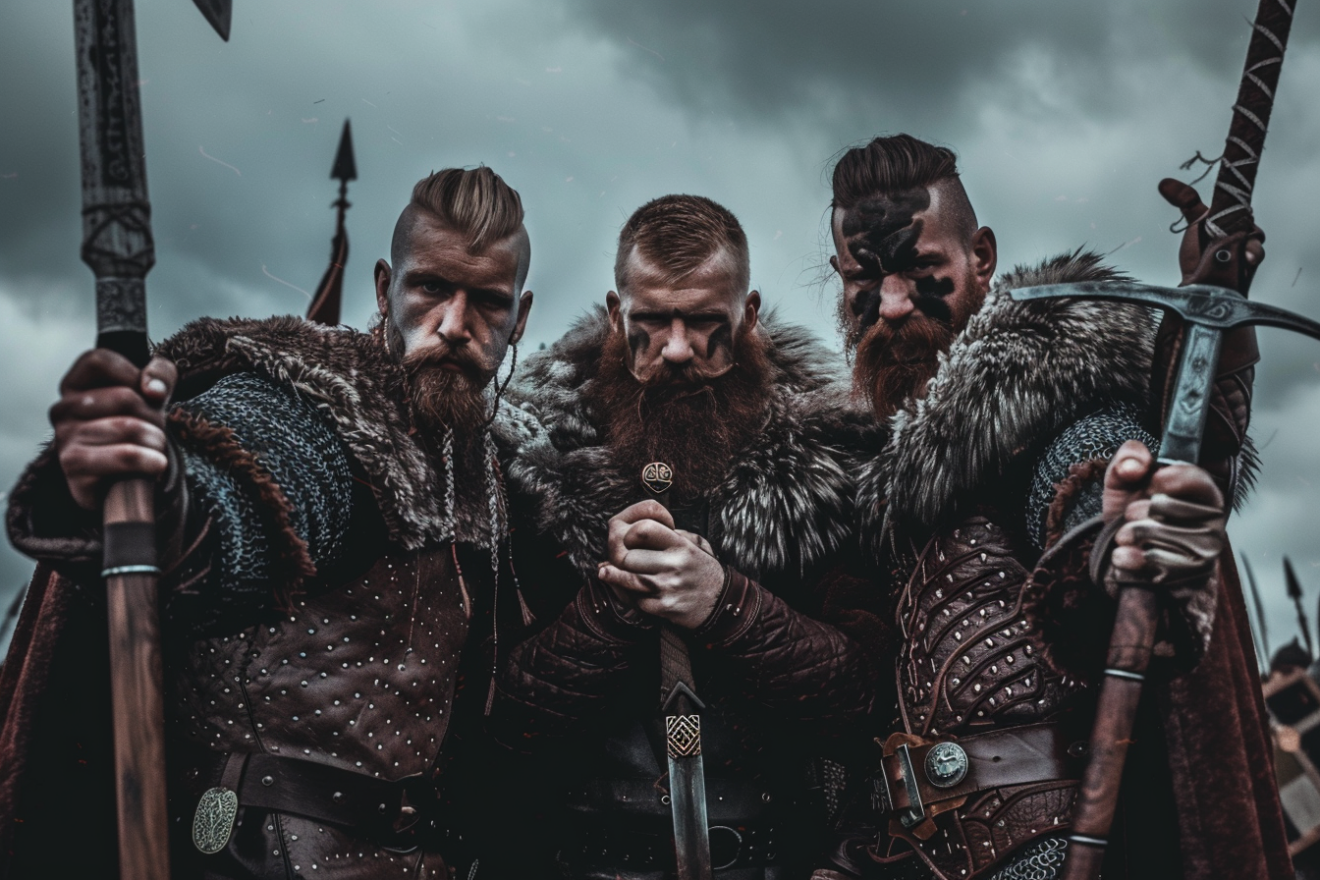
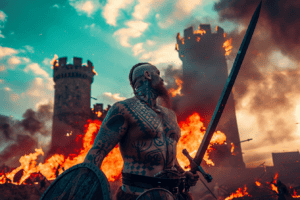
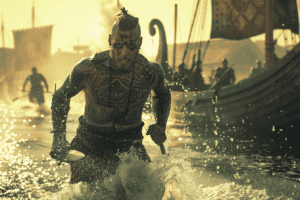
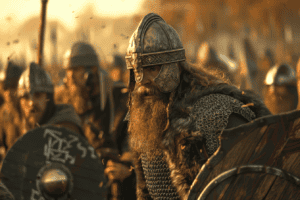





Add Comment